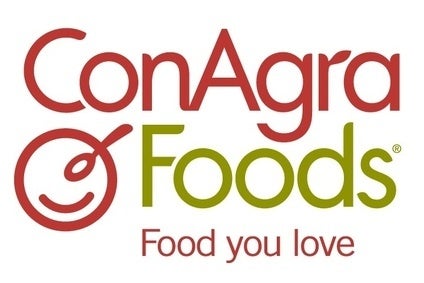ConAgra Foods believes its latest acquisition – Chinese potato group TaiMei – will help further unlock the growth potential in its Lamb Weston unit. However, the move fails to address the issues dogging ConAgra’s private-label and branded businesses and will do little to boost results in the near-term, Katy Askew suggests.
ConAgra Foods announced this week it has acquired Chinese potato processor TaiMei in a US$93m deal. The company said the move is in line with its strategy to expand internationally and would support the development of its Lamb Weston B2B frozen potato business.
Through the transaction, ConAgra will take control of its first potato processing facility in China. The company said the deal would provide Lamb Weston with the ability to make frozen potato products “closer to its expanding customer base” and meet “growing” Asian demand.
The market for frozen potato products in China could prove lucrative for ConAgra. According to the United States Potato Board, China is the fifth largest market for US frozen potato products and demand growth is expected to remain strong.
“Growth is expected to stay strong in the QSR sector and the trend towards western types of food is prevalent. Additionally continuous expansion of local Chinese chain restaurants as well as retail will allow for further opportunities to tap into these sectors,” the industry body said. “Demand still exceeds the supply of frozen potatoes, especially for high quality specialty and value-added products.”
ConAgra said the deal would enable it to leverage the “aggressive” growth plans of quick-serve restaurants in China through its expertise in processing high-quality potato products.

US Tariffs are shifting - will you react or anticipate?
Don’t let policy changes catch you off guard. Stay proactive with real-time data and expert analysis.
By GlobalDataCEO Gary Rodkin said: “Our focused expansion in China is truly customer-centric. We’re leveraging our deep industry experience to develop in-country supply capabilities for our major quick-service restaurant chains and other strategic customers. Our customers have aggressive growth plans in China and by adding ConAgra Foods’ operations in China we will be better able to support their plans.”
While the strategic rationale underpinning the deal is clear, the timing of the investment would seem somewhat questionable.
As Morningstar analyst Erin Lash wrote: “We question the timing of the deal. ConAgra is battling an onslaught of issues, including volume weakness within its branded consumer segment and continued challenges surrounding its private-label offerings.”
During fiscal 2013/2014, ConAgra posted successive profit warnings and disappointed investors with a lacklustre performance from both the branded and private label sides of its business. In the year to 25 May, the group saw its net income fall 59.9% to US$315.1m. Total segment operating profit for its three divisions fell 30% to $1.3bn.
Commenting at the time of the results release, Rodkin said the group was “disappointed” with fiscal 2014. “We have a very focused sense of urgency directed toward improving our results,” he insisted.
Lamb Weston – part of ConAgra’s commercial foods unit – was a bright spot in an otherwise dismal performance. Overall, commercial foods saw a 49% increase in operating profit. “Lamb Weston potato products posted sales and profit growth largely due to strong international volumes, as well as productivity initiatives,” the company said.
ConAgra’s commercial food arm, and Lamb Weston in particular, have been the beneficiary of a decent level of investment. Most recently, the group said it has completed a $200m capacity expansion, adding a production line at its Boardman, Oregon, facility. The benefits of this are feeding through to both top and bottom lines.
ConAgra’s three business units – consumer brands, private label and commercial – each account for roughly a third of the group’s revenue stream. The only one that is performing on-track is commercial. So, is this where the company should be investing right now? Or should the firm be examining its branded and private-label strategy more closely?
Looking to the coming 12 months, Rodkin said the company would focus on “improving branded volumes” through more effective trade, marketing, and resource allocation” on “several large underperforming brands”. Healthy Choice and Chef Boyardee in particular have suffered and are likely to take a considerable amount of work to turn around.
ConAgra has implemented a number of changes to branded products and the way they are promoted. The group has also moved to “refine” consumer communications supporting its brands. However, with a portfolio heavy in number two and three brands, such baby steps seem likely to reap gradual rewards at best.
Meanwhile, ConAgra’s private-label business has found itself squeezed by intense price competition. The unit, boosted by the Ralcorp Holdings’ acquisition last year, has seen prices forced down by low competing bids as US manufacturers vie for retailer tenders.
The company expects the performance of its private-label business to improve as it laps pricing concessions and builds volume. But again ConAgra has failed to take decisive action to address the issues it faces.
Growing Lamb Weston’s presence in China is something of a long-term plan. If ConAgra is to get its house in order, management should focus resources on addressing the under-performing areas of its business.





